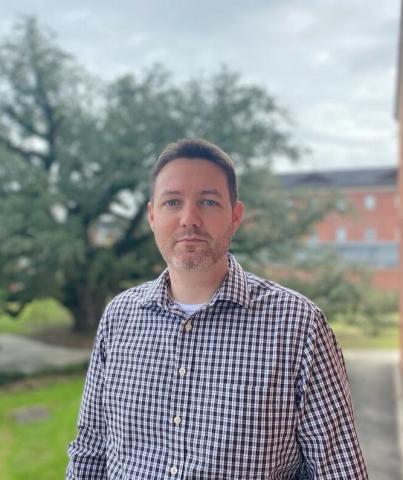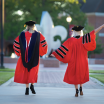Meet Kinesiology Graduate Coordinator Dr. Jeremy Foreman
Meet Dr. Jeremy Foreman, assistant professor and the graduate coordinator for the master’s in kinesiology program. His research examines the coaching labor market, such as the causes of coaches being hired or fired, as well as issues related to racial  discrimination and deviant behavior.
discrimination and deviant behavior.
Dr. Foreman says that seeing students develop into skilled researchers is one of the rewarding aspects of his job.
“As undergraduates, students are largely consumers of information derived from research. Once they get to graduate school, they not only become more skilled at understanding the research and integrating it into practice, but they also become the producers of the research from which that information is derived,” Foreman says. “That transformation is not only exciting to watch as new discoveries are produced, but it is what society needs to progress.”
The masters of kinesiology program at the University of Louisiana at Lafayette allows students to prepare for careers as researchers or practitioners. The program also offers three concentrations: exercise and sport science, health promotion, and recreation and sport management.
The interdisciplinary and applied nature of the program makes it unique.
“Depending on what the student's interest is, they can focus on issues related to diet and nutrition, biology and genetics, physiology, physics and biomechanics, psychology, health and wellness, outdoor recreation, event management, or business-related fields,” Foreman explains. “Because of this diversity in academic disciplines, the School of Kinesiology attracts a diverse group of students from a variety of backgrounds.”
The rigorous academic preparation in the master’s in kinesiology program makes its graduates strong candidates on the job market. Careers in occupational and physical therapy are some of the fastest growing occupations in the nation, according to the Bureau of Labor Statistics.
Dr. Foreman predicts the field will grow at the international level, as well.
“As more countries around the world transition into service economies, kinesiology education will need to expand to meet these demands. This is because kinesiology programs train highly skilled professionals in a variety of services (e.g., physical and occupational therapy, sport and recreation businesses, and athletic trainers). “Students from around the world will be seeking quality kinesiology programs and the programs that can deliver high quality education to international students will thrive, ” Foreman adds.
Wondering if a master’s in kinesiology is right for you? Learn more about our program.
